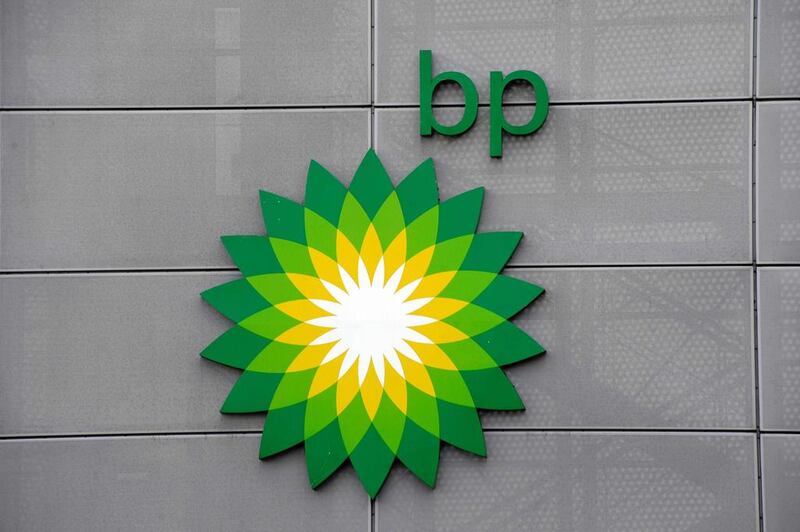BP is expected to report improved earnings this week, following solid first-quarter reports from industry peers ExxonMobil, Total and Chevron.
Net income for the first quarter is estimated to be about US$1.3 billion, compared to a loss of $583 million for last year’s first three months, according to the average in a poll of analysts by S&P Global Market Intelligence.
Despite the expected improvement in earnings, shares in the London-based oil major, which is now 2 per cent owned by Abu Dhabi’s Mubadala strategic investment company, have declined this year by about 8 per cent, principally on worries that the stalled oil price rally might put pressure on BP’s ability to continue to pay dividends at the same rate.
That was the concern raised by Citibank analyst Alastair Syme, who downgraded both BP and Royal Dutch Shell last week, saying that neither company had cut their costs by enough to reflect the likelihood that oil prices will continue to be stuck in a range between US$50 and $60 per barrel. By contrast, Deutsche Bank’s oil sector analyst Lucas Herrmann earlier in April upgraded BP to a “buy” on the view that financial pressures from BP’s Gulf of Mexico oil spill disaster in 2010 were abating, while the company is preparing for improved upstream production from a number of project start-ups and acquisitions.
The more positive outlook reflects that which was laid out by BP’s finance chief, Brian Gilvary, in February when he delivered last year’s financial results.
BP has taken cumulative pre-tax charges against income of about $63bn for the liabilities and penalties incurred by the 2010 Deepwater Horizon disaster, including about $7bn last year and $12bn the year before. Those charges are expected to be much lower this year, while Mr Gilvary forecasts that new projects and acquisitions will add about 800,000 barrels of oil equivalent per day to its output by 2020. That includes its 10 per cent share in Abu Dhabi’s main onshore oil concession, Adco, which it acquired in December in a $2.2bn share swap.
The impact of the Abu Dhabi acquisition is expected to become evident in the first-quarter results, with the company’s 10 per cent share of Adco’s output, which is on track to increase from 1.6 million barrels per day (bpd) to 1.7 million bpd by next year, adding significantly to BP’s average daily oil volume last year of about 1.2 million bpd.
There is also a headwind from oil prices, which have held in the mid-$50s/barrel range during the quarter, compared to last year’s average of about $44/barrel.
Two other major projects adding to BP output volume this year are Egypt, where BP bought Italian oil company Eni’s 10 per cent stake in the Zohr gasfield for $375m at the end of last year, and the Khazzan “tight” gasfield in Oman, where it is the operator and has a 60 per cent stake.
One of the questions on operations will be the impact that Opec/non-Opec output restraint has had on Abu Dhabi and Russia, the latter being one of BP’s biggest exposures via its near 20 per cent stake in Rosneft, Russia’s largest oil company.
amcauley@thenational.ae
Follow The National's Business section on Twitter





